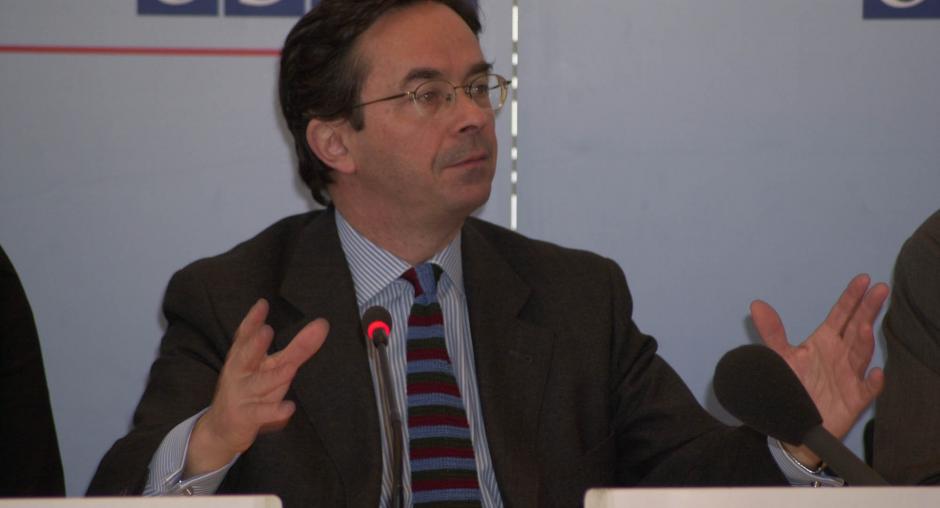Newsroom
ODIHR concerned at infringement to freedom of association in new Kazakhstan election law
WARSAW 15 April 2005

ODIHR Director Christian Strohal. (OSCE/Ayhan Evrensel) Photo details
WARSAW, 15 April 2005 - The Director for the OSCE Office for Democratic Institutions and Human Rights has expressed his concerns with newly adopted amendments to the election law in Kazakhstan.
Ambassador Christian Strohal addressed in particular the prohibition on peaceful assembly that infringes on freedom of association during the period from the end of the pre-election campaign until the official publication of election results.
"This amendment is contrary to OSCE commitments, and such a prohibition obstructs fundamental rights that are characteristic of a genuinely democratic society," said the ODIHR Director.
He urged the Kazakhstan authorities to send the law either back to Parliament or to the Constitutional Council for further consideration.
The ODIHR has enjoyed an intensive dialogue over several years with the respective officials and civil society representatives in Kazakhstan on electoral reform and a wide range of other issues. The ODIHR has a genuine interest to continue this cooperation and to assist the country in its stated intention to conduct elections in line with OSCE commitments.
Ambassador Strohal also noted the ODIHR's concern regarding amendments regulating candidate registration procedures, which would create further obstacles to the right to be a candidate. This is an issue the ODIHR has previously raised.
Other amendments that might pose a challenge to OSCE commitments unless regulated in a transparent and accountable manner include those increasing the possibilities for mobile voting, and those which introduce the right to vote on the basis of a precinct election commission certificate.
"Such provisions are problematic, because they enhance the opportunity for fraud or circumvention of the will of voters," said Ambassador Strohal. "I can only reiterate the concern of the ODIHR over these developments, and at the same time reassure the authorities of the willingness of my Office, together with the OSCE Centre in Almaty, to continue to assist the Republic of Kazakhstan to meet its OSCE commitments."
Ambassador Christian Strohal addressed in particular the prohibition on peaceful assembly that infringes on freedom of association during the period from the end of the pre-election campaign until the official publication of election results.
"This amendment is contrary to OSCE commitments, and such a prohibition obstructs fundamental rights that are characteristic of a genuinely democratic society," said the ODIHR Director.
He urged the Kazakhstan authorities to send the law either back to Parliament or to the Constitutional Council for further consideration.
The ODIHR has enjoyed an intensive dialogue over several years with the respective officials and civil society representatives in Kazakhstan on electoral reform and a wide range of other issues. The ODIHR has a genuine interest to continue this cooperation and to assist the country in its stated intention to conduct elections in line with OSCE commitments.
Ambassador Strohal also noted the ODIHR's concern regarding amendments regulating candidate registration procedures, which would create further obstacles to the right to be a candidate. This is an issue the ODIHR has previously raised.
Other amendments that might pose a challenge to OSCE commitments unless regulated in a transparent and accountable manner include those increasing the possibilities for mobile voting, and those which introduce the right to vote on the basis of a precinct election commission certificate.
"Such provisions are problematic, because they enhance the opportunity for fraud or circumvention of the will of voters," said Ambassador Strohal. "I can only reiterate the concern of the ODIHR over these developments, and at the same time reassure the authorities of the willingness of my Office, together with the OSCE Centre in Almaty, to continue to assist the Republic of Kazakhstan to meet its OSCE commitments."
